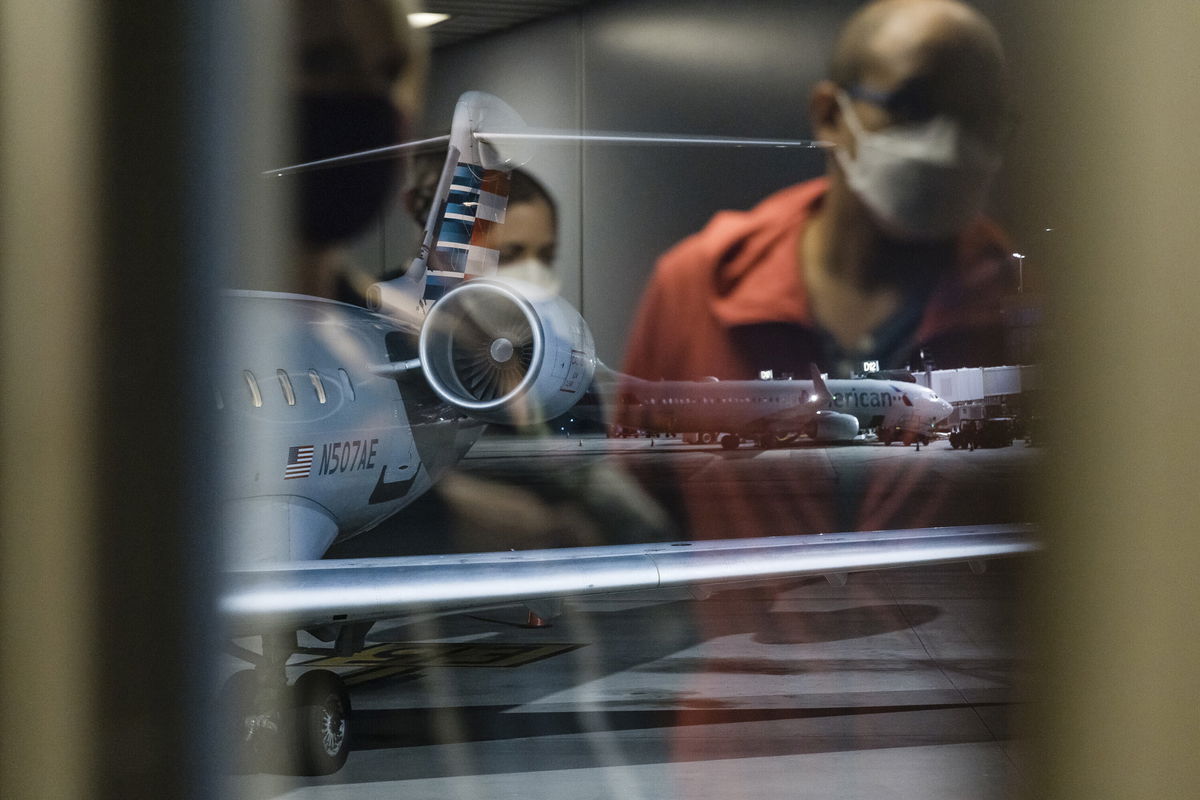Why the mask mandate on planes is good for business

By Chris Isidore, CNN Business
Southwest Airlines CEO Gary Kelly stirred up some controversy Wednesday when he suggested that wearing masks on planes did little to prevent the spread of Covid.
“I think the case is very strong that masks don’t add much if anything in the air cabin environment,” he said in response to a question at a Senate hearing. “It is very safe and very high quality compared to any other indoor setting.”
Two days later Southwest disclosed that Kelly, who was not wearing a mask at the hearing, had tested positive for Covid.
It’s clear that Kelly is right that the air on planes is safer than most any other indoor setting, including most offices and stores. Not only does it pass through medical-grade HEPA filters, but the cabin air is exchanged with outside air consistently throughout the flights.
But the Centers for Disease Control and the Transportation Security Administration insist that even with that air quality, masks still are important to combat the transmission of Covid among passengers, many of whom are unvaccinated, as they are packed together closer than perhaps they’d be in any other setting for hours at a time. The federal rules requiring masks not only on planes but also on trains and buses are set to stay in effect until at least March 2022.
Experts believe that the masks have another and less obvious benefit for the airlines — they provide passengers with the confidence they need to book the flights in the first place.
“I can’t speak to the science of whether masks help. But my thoughts with the mask mandate is that they help with booking leisure travel,” said Kerry Tan, professor of economics at Loyola Unversity Maryland and an expert on the economics of air travel. “I feel like it generally will give passengers peace of mind.”
Although business travel and international travel have yet to return to pre-pandemic levels, leisure travel is believed to be near 2019 levels, especially during the holiday travel season.
The number of passengers who won’t fly because they don’t like masks is likely greatly outnumbered by those who book flights because they know the people sitting around them will wear masks, Tan said. Of course he admits that is difficult to prove, since there is no hard evidence one way or another.
What is known is that in the early days of the pandemic, all the airlines were leaving the middle seats empty as a way to provide passengers with some degree of social distancing on board. It was an easy accommodation to make since so few passengers were flying in those early days, when the pandemic caused demand for air travel to ground to a near halt.
But as soon as demand started returning in the summer of 2020, most of the airlines abandoned that policy, with the exception of Delta Air Lines, which kept its middle seats empty until May 1. The company was rewarded by being able to charge a higher average fare per mile than its rivals. Of course, no one can say whether passengers were paying more for the social distancing or the extra elbow room.
The CEOs of other airlines have said they disagree with Kelly that masks are no longer needed. Even Doug Parker, CEO of American Airlines, who initially said “I concur” after Kelly made his statement, later said he misspoke and did not make it clear that he was only concurring with the belief that the air on planes is safe, not that masks are unnecessary.
“We support the federal mask mandate. Full stop. It was issued by the TSA and in consultation with CDC and other health experts to protect the safety and well-being of our customers and team members. Our job is to enforce the mandate,” Parker said in a follow-up statement Thursday evening. “We look forward to the day when there will be no federal mask mandate for air travel, because that will mean the pandemic is behind us. But today is not that day.”
Delta CEO Ed Bastian said with the rising number of cases of Omicron, “masks are going to be important as a safeguard for a while yet.”
There is one downside to the airlines having a mask mandate to enforce — it has caused a spike in incidents involving unruly passengers. But at least with a federal rule, the airlines can tell passengers who are merely unhappy, and not unruly, that they must wear a mask to comply with federal rules, not the airline’s own rules. And they don’t have to worry about losing customers opposed to masks to a competitor.
All four major airlines declined to speculate if their bookings are helped or hurt by the mask mandate, but other experts agree that it’s likely a benefit.
“It’s not a big deterrent for people to take trips on planes, so it’s probably a net positive for bookings at this point,” said Savi Syth, airline analyst for Raymond James. “This is a service business. Airlines need to make sure passengers are as comfortable as possible. Even if no one likes wearing masks, many would feel less comfortable if others are not doing so.”
The-CNN-Wire
™ & © 2021 Cable News Network, Inc., a WarnerMedia Company. All rights reserved.